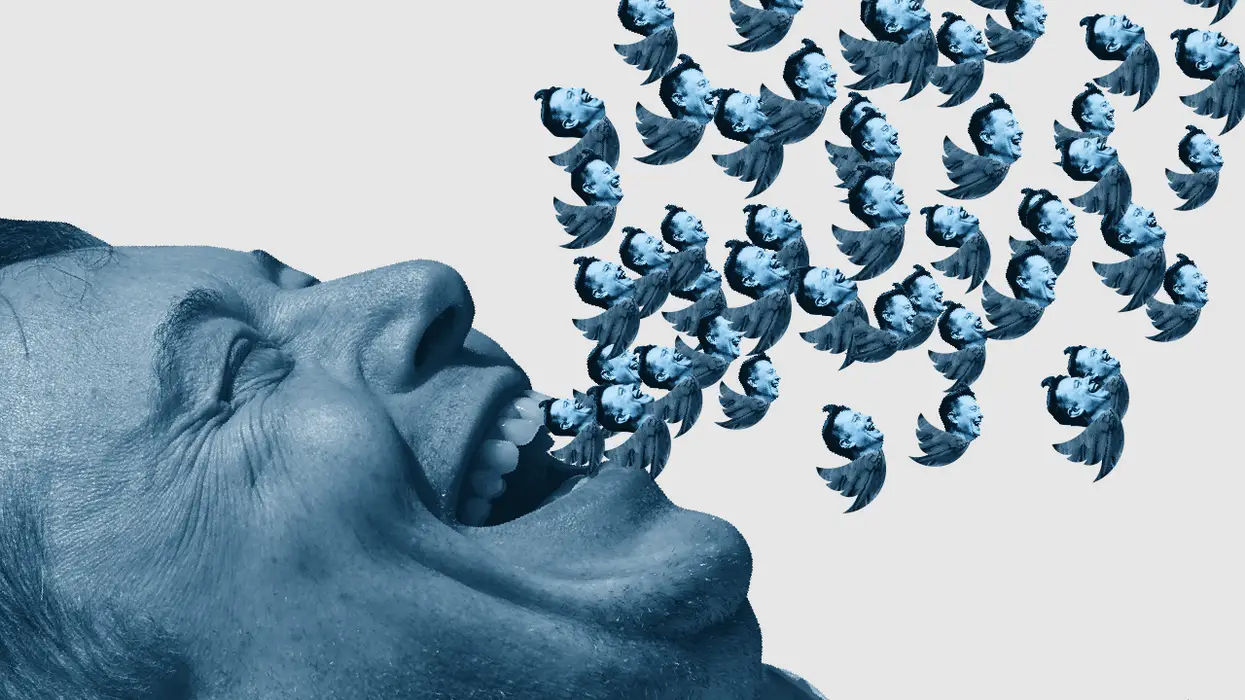A vote on Tesla entrepreneur Elon Musk’s $44 billion offer for Twitter was not included in Twitter’s regularly scheduled shareholder meeting on Wednesday. However, the potential of the buyout and the turmoil that has surrounded it seems to be in everyone’s thoughts. CEO Parag Agrawal said right away that no queries about the idea would be answered by executives. Even a stockholder’s inquiry about what would happen to his shares if Twitter is bought and taken private was shot down. (In this case, the shareholder will get the agreed-upon purchase price for each share, and the stock will be delisted.)
Despite being one of Twitter’s top shareholders, Musk did not attend the meeting. Meanwhile, the acquisition will be voted on by shareholders at an indeterminate time in the future. The drama surrounding Musk’s offer, which was almost entirely orchestrated by him, threatened to boil over into Wednesday’s proceedings. Shareholders who put up motions for a vote regularly mentioned him.
The New York State Common Retirement Fund proposed a study on Twitter’s standards and processes for political donations made using company monies. In a preliminary vote, it was approved. Two conservative-leaning organizations’ initiatives failed to get enough votes to approve. One demanded an investigation into the company’s “impacts on civil rights and non-discrimination,” while another described “‘anti-racism’ initiatives that strive to achieve ‘racial/social fairness’” as “seriously racist.” The other demanded greater information on the company’s lobbying activity.
Several suggestions addressed the underlying existential struggle between Twitter’s users, workers, shareholders, and employees. While some stockholders have chastised the firm for what they perceive to be overly liberal politics and prejudice against conservatives (for which there is no proof), others have claimed that the corporation is failing to protect users from harassment, abuse, and disinformation.
Musk’s “free speech” rule, which he has hinted would govern the firm if he takes control but has not specified, has only exacerbated the feud. Musk had stated that if he took over Twitter, he would be able to do rid of the bothersome “spambots.” However, he has been suggesting, without providing proof, that there may be too many automated accounts for the transaction to go through.
Experts argued last week that the world’s wealthiest man’s abrupt flip makes little sense unless it’s a ruse to scuttle or renegotiate a transaction that’s growing more pricey for him. The fact that the entire process is taking place in public — on Twitter, no less — simply adds to the instability that has characterized Musk’s campaign from the start.
After alleging that Twitter’s own estimate is too low, the mercurial billionaire tweeted earlier in May that the acquisition was “on pause” because he wanted to identify the quantity of spam and fraudulent accounts on the social media network. Experts believe Musk can’t put the transaction on hold unilaterally, but that hasn’t prevented him from behaving as if he can. He might be liable for a $1 billion breakup fee if he walks away. Twitter might also sue Musk to compel him to complete the acquisition, but analysts believe this is exceedingly improbable.
Twitter’s stock has been dragged down by uncertainty. Investor concerns over the social media industry have weighed down stock prices this year. Then, late Monday, Snap, the company behind the disappearing messaging and video special effects app Snapchat, issued a severe earnings warning, claiming that “the macroeconomic climate has worsened farther and quicker than expected” since last month.
Social media businesses are vying for the same pool of advertising dollars, which is being more threatened by rising prices and Apple Inc. changes that might limit the information social media platforms can gather on users, a key selling point for marketers.
Snap Inc.’s stock fell 43% on Tuesday, but it regained some of its losses on Wednesday, recovering roughly 12% to $14.31. In early afternoon trading on Wednesday, Twitter shares were up $1.09, or 3%, at $36.83. Musk has agreed to pay $54.20 for each share of his company. Shareholders slammed Facebook’s corporate parent, Meta Platforms, and its founder, Mark Zuckerberg, during their annual shareholder meeting on Wednesday.
The barrage was aimed at Facebook algorithms, lax controls over disinformation, and offensive material, which disgruntled shareholders said had harmed democracy, encouraged murder and mayhem, and harmed children.
The dissatisfaction resulted in a number of suggestions that sought to diminish the authority of Zuckerberg by requiring Meta to be subject to more independent supervision of Facebook, Instagram, and the business’s other products. Zuckerberg’s controlling position in the firm caused one shareholder to berate him as an “elitist oligarch” during the 70-minute meeting. The proposals sought to force Meta to submit to a more independent review of Facebook, Instagram, and the company’s other goods.
According to preliminary data released Wednesday, none of the 12 plans earned more than 30% approval. The lopsided result is primarily due to Zuckerberg’s strong grasp on the firm he famously founded in a Harvard dorm room over 20 years ago. Zuckerberg. Meta’s chairman and CEO, as well as the company’s other eight board members, earned over 90% support to stay in their positions. The overwhelming support came only days after a large New York pension fund, which holds Meta shares, said that it would vote against the board of directors in protest.
Source: AP

